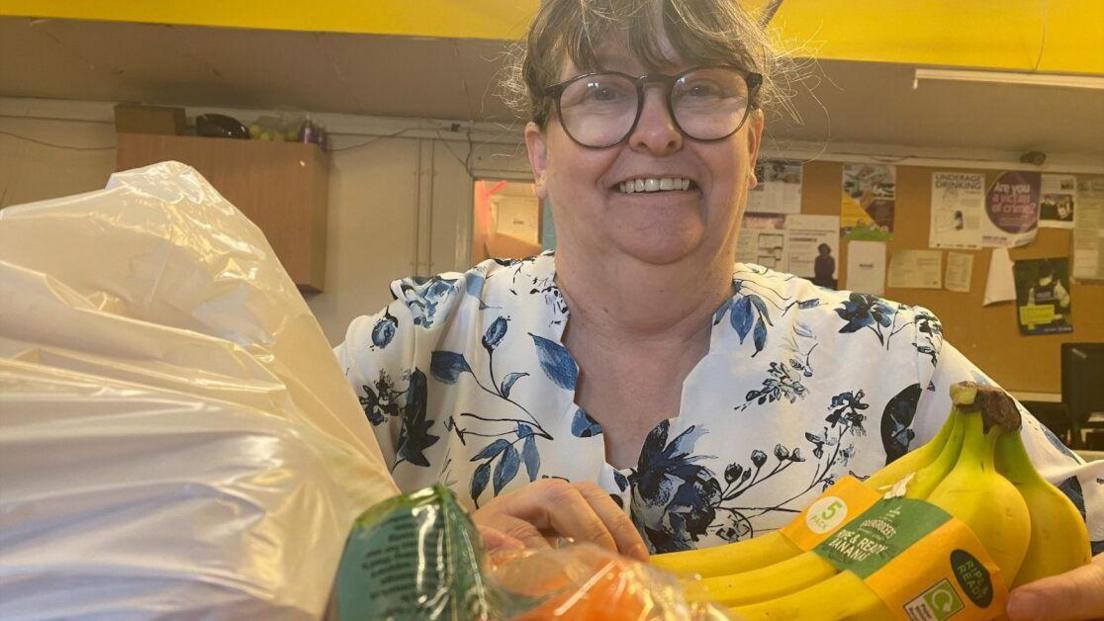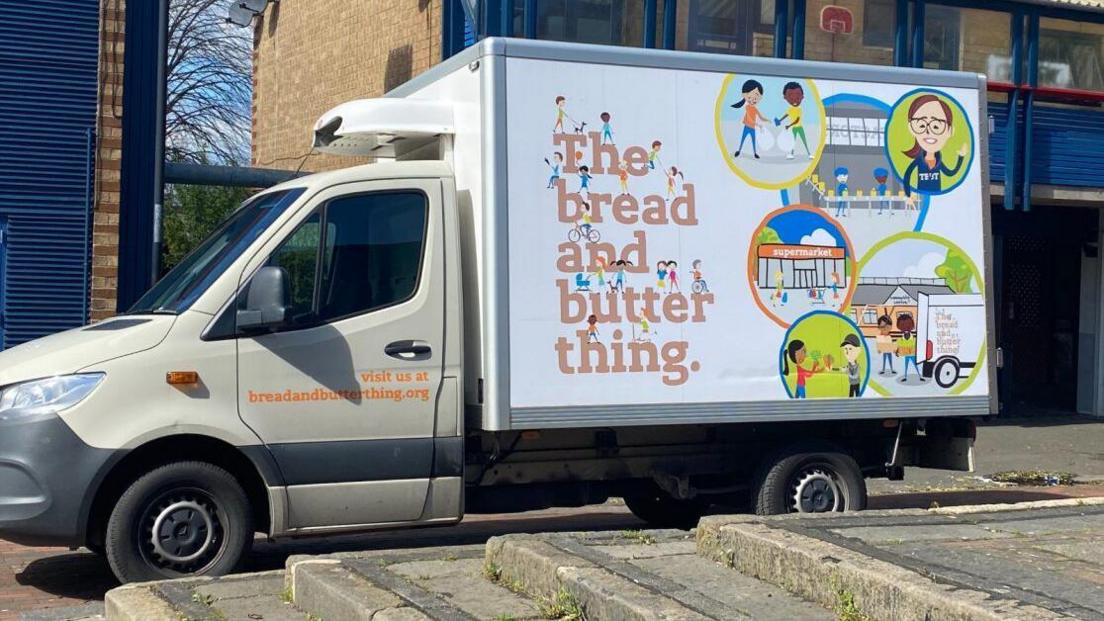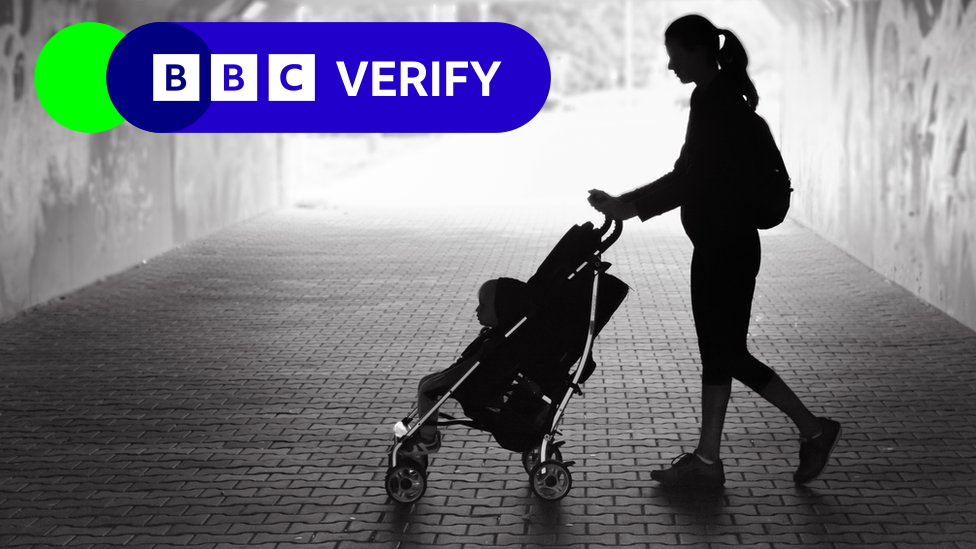North East named food insecurity 'hotspot' - study

Some families in north-east England are struggling to afford food
- Published
People in the north-east of England are more likely to need help buying food than those living anywhere else in Britain, a study has found.
The Consumer Data Research Centre found more than a third of the region’s population were living in neighbourhoods which researchers suggested were "hotspots" for families needing help.
Penny Walters, from Newcastle, recalled struggling to raise her daughter with only £10 a month for groceries, saying: "We lived off pasta, pasta and even more pasta."
The government said it was providing £108bn in cost of living support.
Academics from the Consumer Data Research Centre, external at the University of Leeds, in partnership with the consumer group Which?, ranked every neighbourhood in the UK according to a range of factors, including income, access to affordable, healthy food, and fuel poverty.
BBC analysis of the data found the north-east of England had the highest concentration of neighbourhoods where people were most likely to need help affording or accessing healthy food.
Figures showed just under one million people in the North East - over a third of people in the region - were living in neighbourhoods which researchers suggested were "hotspots" for families needing help.

Penny Walters volunteers at a food support service, after needing to use one herself
Ms Walters, 57, volunteers at The Bread and Butter Thing in Byker, which sells surplus food.
She said it was "more dignified than going to a food bank".
It is open to anyone, and for as little as £8.50, people can take home three bags of food, containing fresh fruit and vegetables, milk, cheese and store cupboard items like cereal and soup.
As well as being a volunteer, Ms Walters is also a customer, following her own experiences of struggling to afford food.
She said, in the past, she and her daughter had just £10 a month for groceries and "lived off pasta, pasta and even more pasta".

The Bread and Butter Thing has over 120 locations across England, the charity said
Anna Taylor, executive director of the Food Foundation charity, said the poorest families were struggling to eat a balanced, healthy diet.
"The food supply is dominated by cheap junk food and what it’s not oriented towards is providing affordable nutritious food for everyone," she said.
The Department for Work and Pensions said it was providing £108bn in cost of living support, which was worth on average £3,800 per household.
It also said, while food inflation had fallen significantly, it continued to engage with supermarkets about the best way to support consumers.
About the data:
Data came from the Priority Places for Food Index, external developed by Which? and the Consumer Data Research Centre at the University of Leeds.
Researchers combined measures such as accessibility of large supermarkets, car ownership, fuel poverty and other factors, and then ranked UK neighbourhoods according to their score.
Those with scores in the lowest fifth within their nations were seen as hotspots for food insecurity.
Follow BBC North East on X (formerly Twitter), external, Facebook, external and Instagram, external. Send your story ideas to northeastandcumbria@bbc.co.uk
- Published21 March 2024

- Published5 December 2023

- Published16 May 2023
